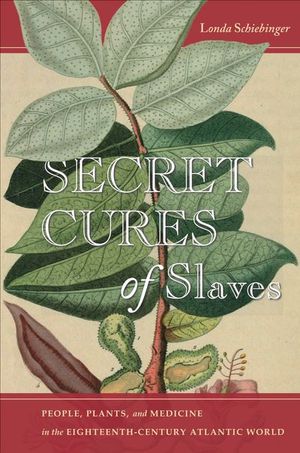Secret Cures of Slaves
Published by Stanford University Press
“Engaging unique sources . . . Londa Schiebinger untangles the complex relationships between European and local physicians, healers, plants, and slavery.” —François Regourd, Université Paris Nanterre
In the natural course of events, humans fall sick and die. The history of medicine bristles with attempts to find new and miraculous remedies, to work with and against nature to restore humans to health and well-being. In this book, Londa Schiebinger examines medicine and human experimentation in the Atlantic World, exploring the circulation of people, disease, plants, and knowledge between Europe, Africa, and the Americas. She traces the development of a colonial medical complex from the 1760s, when a robust experimental culture emerged in the British and French West Indies, to the early 1800s, when debates raged about banning the slave trade and, eventually, slavery itself.
Massive mortality among enslaved Africans and European planters, soldiers, and sailors fueled the search for new healing techniques. Amerindian, African, and European knowledges competed to cure diseases emerging from the collision of peoples on newly established, often poorly supplied, plantations. But not all knowledge was equal. Highlighting the violence and fear endemic to colonial struggles, Schiebinger explores aspects of African medicine that were not put to the test, such as Obeah and vodou. This book analyzes how and why specific knowledges were blocked, discredited, or held secret.
“In this urgent, probing and visually striking volume, Londa Schiebinger, one of the pioneers of feminist and colonial science studies, shifts our understanding of Enlightenment racial attitudes to the domain of the medical, making a vital contribution to the dynamic new wave of research on science and slavery in the Atlantic world.” —James Delbourgo, Rutgers University
In the natural course of events, humans fall sick and die. The history of medicine bristles with attempts to find new and miraculous remedies, to work with and against nature to restore humans to health and well-being. In this book, Londa Schiebinger examines medicine and human experimentation in the Atlantic World, exploring the circulation of people, disease, plants, and knowledge between Europe, Africa, and the Americas. She traces the development of a colonial medical complex from the 1760s, when a robust experimental culture emerged in the British and French West Indies, to the early 1800s, when debates raged about banning the slave trade and, eventually, slavery itself.
Massive mortality among enslaved Africans and European planters, soldiers, and sailors fueled the search for new healing techniques. Amerindian, African, and European knowledges competed to cure diseases emerging from the collision of peoples on newly established, often poorly supplied, plantations. But not all knowledge was equal. Highlighting the violence and fear endemic to colonial struggles, Schiebinger explores aspects of African medicine that were not put to the test, such as Obeah and vodou. This book analyzes how and why specific knowledges were blocked, discredited, or held secret.
“In this urgent, probing and visually striking volume, Londa Schiebinger, one of the pioneers of feminist and colonial science studies, shifts our understanding of Enlightenment racial attitudes to the domain of the medical, making a vital contribution to the dynamic new wave of research on science and slavery in the Atlantic world.” —James Delbourgo, Rutgers University
BUY NOW FROM
COMMUNITY REVIEWS
